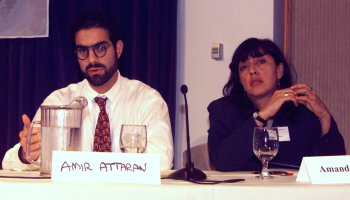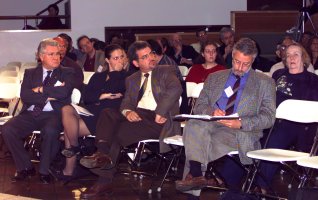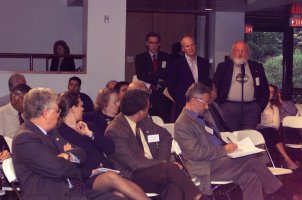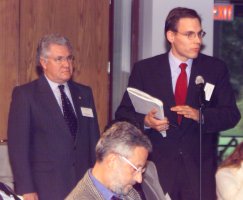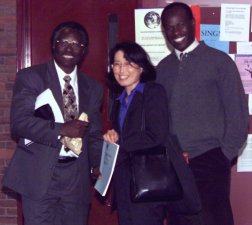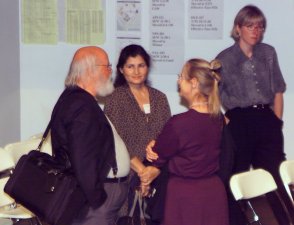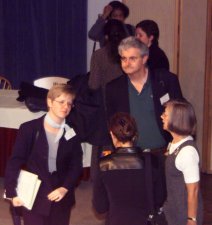 Sustainable Developments
Sustainable Developments
|
|
|
|
|
|
|
|
|
|
| Summaries of the parallel sessions |
 |
|
|
|
|
||
|
|
| During the ensuing discussion, a number of issues were raised. One participant called for comparative assessments of why some developing countries, like Kenya, Brazil and India, do not allow commercialziation of GM crops, whereas others like China do. He suggested that democratic structures could be a factor. Another said that globalization is the true context for this debate, as people interact on a profit basis. One participant found that failure to criticize existing regulatory processes leaves an unbalanced conclusion and that recommendations should ensure data gaps are filled. Another participant concluded that the precautionary approach may condemn the comparative advantages of some developing countries using biotechnology. Another said that whether or not the precautionary principle is used, a comparison of advantages and disadvantages requires working across scientific disciplines and in different field settings, rather than in a laboratory. |
|
Klaus
Ammann (right) suggested, inter alia, the creation of a "toolbox"
to come to better terms with the precautionary principle, deal with
data and prepare a database containing relevant information on crops
and biotechnology.
|
||
|
One representative of Monsanto proposed that determining what is "insufficient" knowledge" would greatly facilitate future discussions.
|
||
|
Calestous
Juma, Chikako Takase, UN Division for Sustainable Development, and Thomas
Yongo, Earth Negotiations Bulletin (all formerly with the Secretariat
of the Convention on Biological Diversity)
|
||
|
Delegates
mingle after the close of the conference
|
|||
|
|
 CID
homepage CID
homepage |
 Conference
Program Conference
Program |
 CID events CID events
|
 Abstracts
and Viewpoints Abstracts
and Viewpoints
|
 International Conference
on Biotechnology in the Global Economy homepage International Conference
on Biotechnology in the Global Economy homepage |
|
|
|
|
|
|
|
|
|
|
©2000, IISD. All rights reserved.



